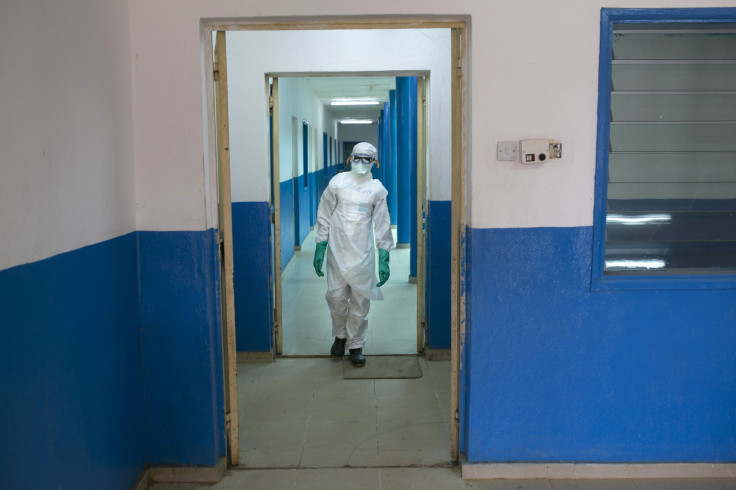Health Workers Attacked In Guinea While Holding Funeral For Ebola Victim

Red Cross volunteers trying to safely bury Ebola victims in Guinea were attacked on Sunday by people attending the funerals. Aid workers in Guinea face an average of 10 attacks a month, the International Committee of the Red Cross (ICRC) said.
One volunteer, Toupou Lopou, said the crowd attending the funeral grew violent when the medical team tried to take a blood sample from the body for testing, the New York Times reported. Lopou said people began throwing stones and attacking those who were conducting the burial.
In a statement released Thursday, Youssouf Traoré, president of the Guinean Red Cross, said Ebola would not be stopped until people changed their attitude towards the disease and the international effort against it.
“Red Cross volunteers in Guinea are working day and night to keep communities safe,” Traoré said in the statement. “Acts of violence committed against them are completely unacceptable.”
The report came as the United States announced it would recall all but 100 of its troops stationed in Liberia to help fight Ebola.
Misinformation and conspiracy theories about the origin of the disease are reportedly widespread in the areas it has affected.
An article published by The Daily Observer, a Liberian newspaper, alleges that the virus is a bioweapon designed by the United States to depopulate Africa.
Other theories have accused the Centers for Disease Control and Prevention of patenting the virus in order to profit from a vaccine, The New York Times reported. As a result, some sufferers have reportedly turned to traditional medicine men and witch doctors to help them fight the disease, The Nation reported.
Yann Bonzon, head of the Guinean delegation of the ICRC, said communities that had recently been exposed to the virus were more likely to react with suspicion and hostility to health workers, spreading rumors such as “the Red Cross is spraying Ebola into the schools,” he told The New York Times.
In the first week of February, Guinea reported 65 cases of Ebola, up 39 from the previous week. Only a sixth of those recent cases have been among people known to be at risk.
“That means cases are arriving without any clear idea of how the transmission occurred,” Dr. Margaret Harris, a spokeswoman for the World Health Organization’s Ebola response, told The New York Times. “It means underground transmission chains, potentially unsafe burials.”
© Copyright IBTimes 2025. All rights reserved.




















